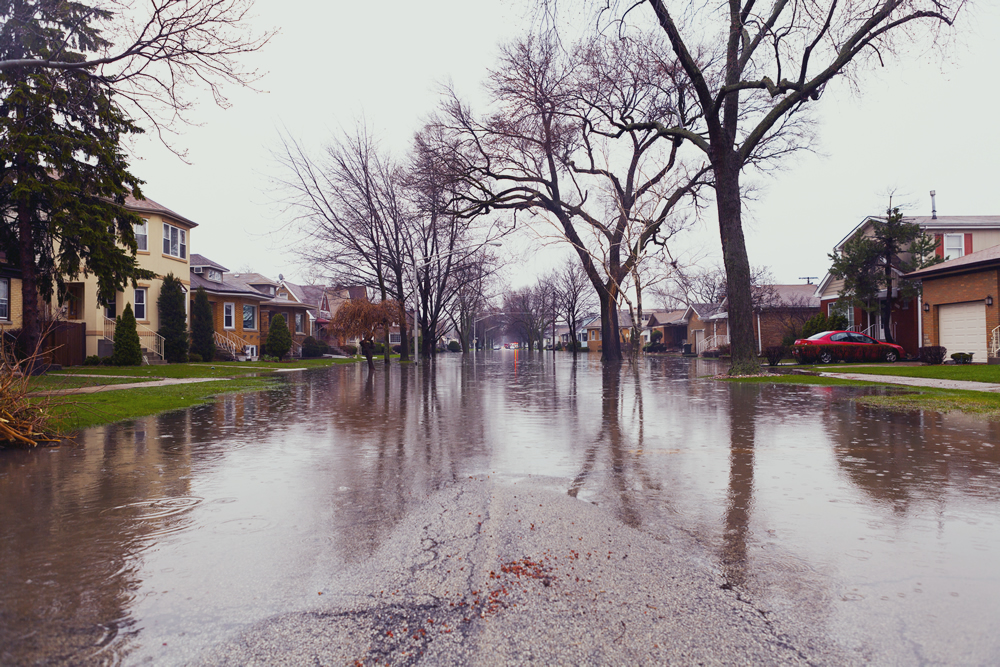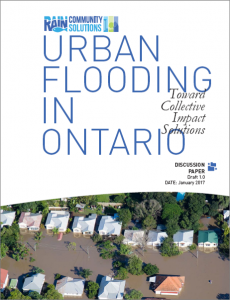Urban flooding has enormous and growing impacts on our economy, health, and environment. It is a complex problem with no easy solutions that requires a collaborative multi-sectoral response.
Over the past six months, Green Communities Canada in partnership with Credit Valley Conservation and Institute of Catastrophic Loss Reduction has initiated the first phase of a Collective Impact project supported by Ontario Trillium Foundation.
Our Urban Flooding in Ontario: Toward Collective Impact Solutions report defines the issue of urban flooding, explores impacts and drivers, provides an overview of relevant initiatives to date, and lists potential actions as a starting point for discussion. Multiple stakeholders, including private sector, nongovernmental, governments, academic, property owners, and others — need to collaborate in finding and implementing solutions. We intend for our report to lay the foundation for a practical and collaborative approach to addressing a difficult, costly, and complex issue facing our province in the years to come: urban flooding.
Our focus is on the relatively neglected issue of urban flooding, i.e., inundation that occurs on the landscape, away from riverine flood plains. Urban flooding results from stormwater management systems that are overwhelmed by runoff volumes. Urban flooding also includes combined sewer overflows and sewer backup due to inflow and infiltration. We outline trends and impacts, including billions of dollars of economic activity lost due to flooding; health and issues such as respiratory illness resulting from flood-induced mould; and environmental impacts of erosion and habitat disruption. We cover contributing causes of urban flooding, the most significant of which we believe to be land-use changes and urbanization. The rainwater runoff from the increased impervious surfaces is compounded by inadequate and aging stormwater infrastructure systems and exacerbated by climate change (increased extreme wet weather events).
Municipal, Provincial and Federal government responses to date are documented, along with initiatives undertaken by Conservation Authorities, the private sector, academic institutions and non-profits. A proposed list of potential solutions to be considered in the next phase of this project concludes our report, prompting our reviewers to envision solutions they consider priorities for solving the urban flooding issue.
We hope to receive all feedback by 6 February 2017, at which point we will develop a revised document that most if not all stakeholders can endorse. In the next phase, building on a broad consensus about the problem, our priority will shift to identifying and implementing solutions, involving a similarly broad spectrum of stakeholders. Although solutions and the way forward are not clear at this point, we do know that urban flooding is also a problem that no single actor or group can solve on their own. Complex problems like urban flooding require a collective impact approach to identify and implement preventive remedies, in which participants all have a role to play. We have to work together to get the job done.
To view the full report, get involved in the collaborative process or ask any questions please contact Anastasia Kaschenko, our Climate Adaptation Intern, at 705.745.7479 x.160 or email anastasia(at)greencommunitiescanada.org
This blog was published on the Umbrella Stormwater Bulletin Issue 51.


